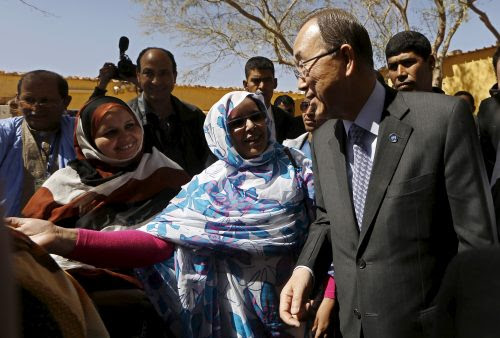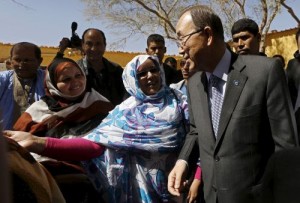American Entreprise Ideas
Michael Rubin@mrubin1971
photo: REUTERS/Zohra Bensemra
The entire operation has cost more than $1.25 billion since its inception… during the course of MINURSO’s existence, the US taxpayer has been on the hook for perhaps $400 million in total.
In 1991, as part of a ceasefire ending the 16-year conflict between Morocco and the Polisario Front, a Cold War proxy of the Soviet Union and Algeria, the United Nations created the United Nations Mission for the Referendum in Western Sahara (MINURSO). MINURSO’s goal was simple: Hold a referendum for ethnic Sahrawi from the Western Sahara to determine their final status: Did they want to rejoin Morocco or subordinate themselves to the Polisario’s self-styled and autocratic Sahrawi Arab Democratic Republic?
What should have been a simple operation derailed after the Algerian regime refused to allow an independent census for refugees in its territory in order to allow the UN to determine eligibility to vote. The Algerian government regularly inflates the numbers of refugees in its camps — they claim more than 100,000 while satellite imagery and independent observers believe the number is less than half that — in order to embezzle aid and assistance. Nor is the Algerian government willing to differentiate between Sahrawi refugees from the Western Sahara versus Sahrawis from Mauritania and Algeria who do not originate in the territory and so have no standing, let alone non-Sahrawis. As a result, what should have been a year-long mission has now stretched to a quarter century, with no end in sight.
How much does a quarter-century UN operation with no accomplishment to its name cost?
According to UN documents, from July 1, 2006 through June 30, 2015, the United Nations spent just short of $500 million on MINURSO. The entire operation has cost more than $1.25 billion since its inception. While the United States is at present responsible for 22 percent of the UN’s budget, the assessment rate for peacekeeping operations is higher—a bit over 28 percent. In the past, it was even higher. This means that during the course of MINURSO’s existence, the US taxpayer has been on the hook for perhaps $400 million in total.
Now to the present: Earlier this year, UN Secretary-General Ban Ki Moon visited the Algerian camps for Sahrawi refugees and perhaps at the urging of UN envoy Christopher Ross (a former US ambassador to Algeria) as well as US ambassador to the UN, Samantha Power and US National Security Advisor, Susan Rice, used the word “occupation” to describe Morocco’s possession of the Western Sahara. The reality, of course, is more complicated. Moroccan officials understandably were apoplectic and sent most of the MINURSO personnel in the Kingdom packing.
It has been the position of the State Department ever since to compel Morocco to allow the return of MINURSO personnel. A return to the status quo ante and deference to the United Nations may always be the knee-jerk reaction of the State Department but it is long past time to ask why? After all, the United Nations has nothing to show for the $1.25 billion it has spent on MINURSO. MINURSO personnel in Morocco live a relatively luxurious life and, because of Algerian intransigence, do very little beyond shuffle papers, patronize fancy restaurants, and swim at five-star hotels.
Perhaps it is time for the State Department and Congress to cease treating the US donation to peacekeeping as a UN entitlement and instead demand a clear path to fulfillment of the mission. When no such path exists, the US taxpayer should not throw good money after bad. MINURSO has failed. The United States should not pressure Morocco to allow MINURSO’s return but instead embrace Plan B: Recognize the regional autonomy which Morocco has granted the Western Sahara. Rather than continue paying what has essentially become welfare to MINURSO employees, perhaps the United States would do better by using such funds to invest in businesses and further grow the region’s economy.
Such a policy would be good for the United States, good for Morocco, and good for the Sahrawis. If that means either Ross and/or those feeding out of the MINURSO trough have to look elsewhere for employment, so be it.








